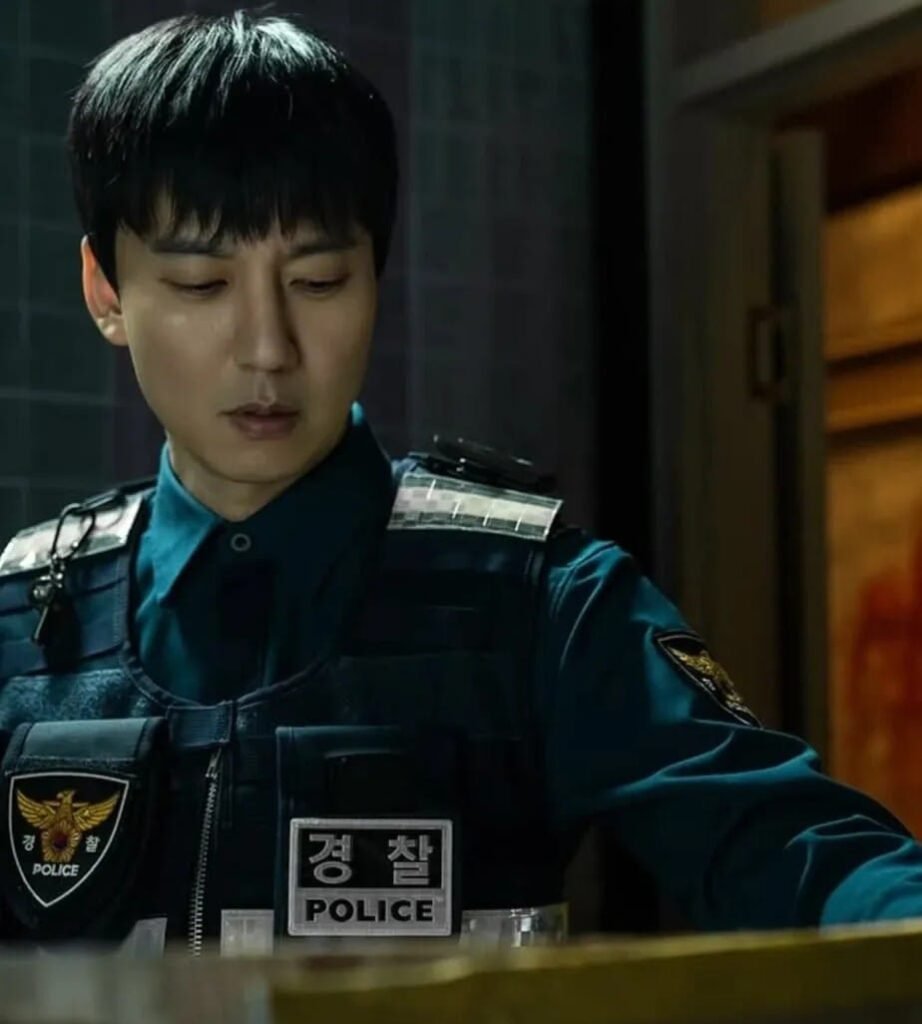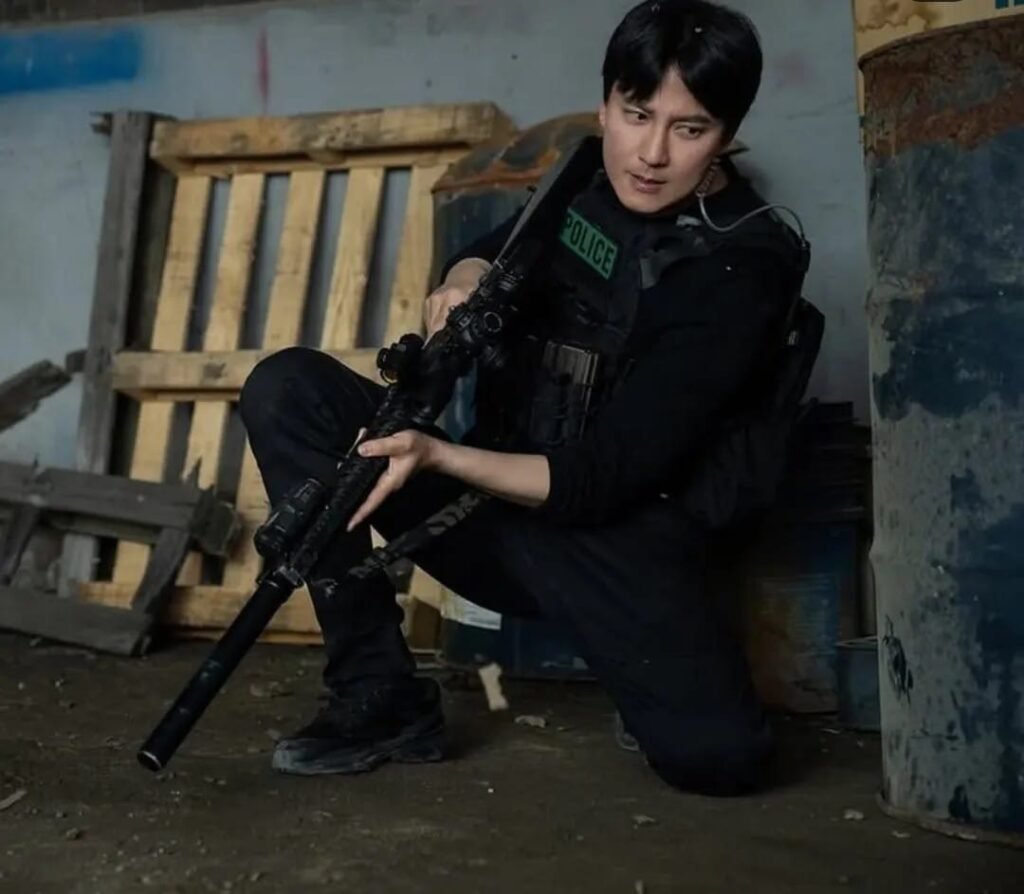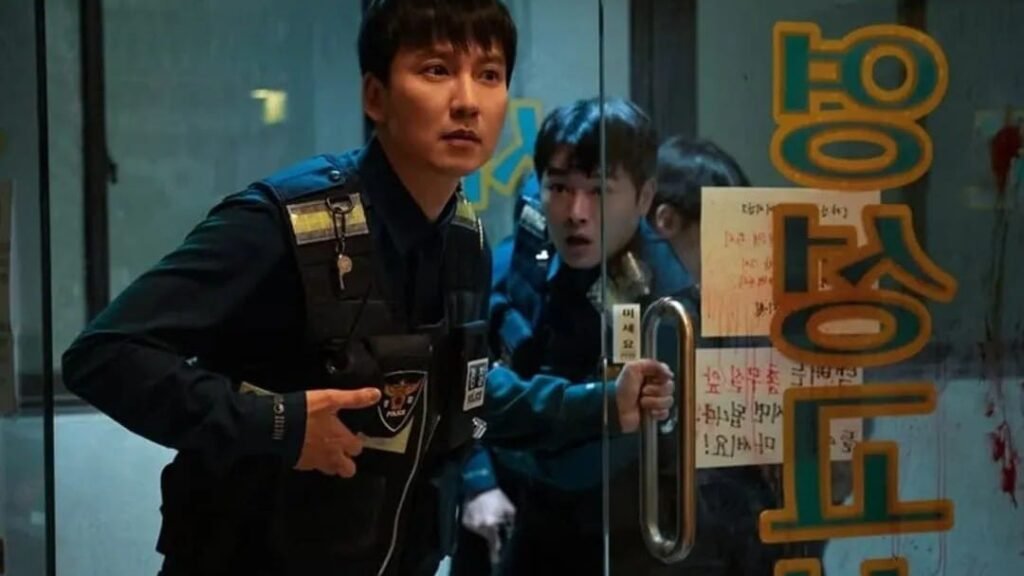‘Trigger’ on Netflix blends trauma, tension, and mind games. Read our detailed review to find out why it’s a binge-worthy psychological masterpiece.
Netflix has once again proven itself in the genre of psychological thrillers with its newest K-drama, “Trigger.” The K-drama is daring audiences worldwide, written and produced by the brilliant Kim Yoon-seok. Seo Ji-hoon, Kim Hye-yoon, and really every cast members are rising stars in their performances like never before, and the experience and craft level of Kim Yoon-seok took “Trigger” into a dark and deeply psychological experience into the human cerebral cortex we all inhabit on our never-ending journey of memory, trauma and ultimately justice in often terrifying, dark, and unexpected ways.
In this review, we will discuss why Trigger is so bingeable; from the layered stories and emotional weight, to the twisty side of its narrative and beautiful cinematography. If you are a fan of psychological thrillers, K-dramas, and enlightening storytelling, then Trigger is worth your viewing time.

An Immediate Hook
At its most fundamental level, Trigger revolves around a young trauma therapist, Yoon Jae-won, who becomes embroiled in some baffling patient cases—all of whom have one crucial thing in common: they have committed crimes that they cannot recall. What starts as professional curiosity quickly transforms into a disturbing investigation as Jae-won discovers he has some personal business to sort in these cases—perhaps related to his own suppressed memories and past trauma;
The series doesn’t muck about. Right out of the gate, Trigger sets a relentless pace, shaking viewers from complacency, making one question everything and everyone, as suspense builds mile after mile after mile. The writers build mystery with each and every scene, inserting bits of unremarkable clues, which are only recognized after the fact (as viewers, we can engage in the production of meaning).
Psychological Thriller Trauma Drama

While Trigger certainly incorporates all the elements of a traditional thriller, the underlying aspects make it richly psychological. It is not a who-done-it; it is a why-done-it. The storyline taps into thought-provoking psychological concepts like repression, PTSD, dissociative identity disorder (DID), and false memory syndrome without being pedantic or too clinical.
The trauma depicted in Trigger feels visceral and real. In each episode, one may see how adult manifestations of childhood abuse, social pressure, and emotional neglect are imprinted in the subconscious and can result in perilous coping mechanisms. The characters are not wholly victimized or villainized; they are fully fledged and complex individuals shaped by their past.
Where Trigger excels is in its delivery of emotionally charged storytelling. You watch the mystery unfold, yet you experience the tension, the confusion, the sadness, and the horror that the characters go through. It is not light entertainment, but it is also not gratuitously dark. Nothing horrific happened for no reason, and the resolution is both painful and cathartic.
Flawless Performances by a Stellar Cast
One of the best parts of Trigger is its cast. Seo Ji-hoon as Yoon Jae-won has one of the best, career-defining performances as a man who is either slowly unraveling or attempting to remain composed and professional. Ji-hoon beautifully juxtaposes vulnerability and ferocity, especially when the character begins to examine his own perceived reality.
Kim Hye-yoon, as investigative journalist Cha Eun-seo, is equally engaging. Her chemistry with Ji-hoon gives the series its emotional punch and is a great foil and mirror to Jae-won. They together have one of the most dynamic pairings in contemporary K-drama.
With seasoned actors Jo Seung-woo (as a brilliant but cold psychiatrist) and Park Ji-yeon (as Jae-won’s estranged mother) in primary supporting roles, I continue to enjoy every actor in this series. It’s very refreshing to see so many actors really perform their roles with depth and authenticity, so much so that even minor characters should be remembered.
Clever, Subtle, and Suspenseful writing
The writing of the show Trigger is brilliant. Each episode of the show brings another layer in terms of complexity, with each episode being a piece of the puzzle that is more than just the total of the parts. The dialogue and conciseness are refined and sharp with subtle double meanings becoming more pronounced as events unfold. Memory, perspective, and time are blended often with flashbacks as they occur in such a way as not to disorient the audience.
This storytelling method is not just artistic; it is vital to the plot. What the viewers experience is the same ambiguity as Jae-won–always asking: What is real? What is imaginary? Who do I trust?
The writers manage to layer in social commentary– key points include the stigma attached to mental health in South Korea, the burden of family and academic standards, and the blurry line between therapy and manipulation.
Cinematography and Sound Design: A Visual and Auditory Masterpiece
Visually, Trigger is astonishing, as everything from the color to the movement reflects the emotional bleakness of the characters, with sullen yet beautiful muted tones. The cinematography aspects pull everything together– tight framing with purposeful slow-moving tracking shots, and mirroring reflections enhance the fragmented notion of identity. The visual metaphors—the broken glass, doors closing, and shadows are used subtly, but they get the point across.
And then there’s sound design. Every creak, breath, dying breath, and silence is perfectly timed to enhance the tension. Yoon Il-sang, the composer, delivered an unsettling focal point within the music; the uneasy melody lingers on well after the credits have ended.
Overall Rating: 9.5/10
Pros:
Intense and intelligent narrative
Amazing performances from the full cast
Deep exploration of trauma and memory
Visually and sonically stunning
Unpredictable with emotional depth.
Cons:
Heavy themes might not be for everyone.
Requires your full attention.
Should You Watch It? Yes.
If you’re still on the fence about possible things to binge, Trigger is worth your time. Yes, yes, and YES.
This is NOT just another psychological thriller. Trigger is a genre-blending, emotionally intelligent, and deeply impactful series that will stay with you through time, long after the credits roll. With the powerful acting, razor-sharp writing, and mesmerizing visuals, it is one of the best Korean dramas on Netflix in 2025.
The Finale is worth discussing (no spoilers!)
Without spoiling it, Trigger gives a finale that is shocking and satisfying. The last two episodes are a whirlwind of revelations, confrontations with emotions, and moral ambiguity, and just when you think you know it all, this show flips the script – yet again.
But it doesn’t leave you hanging. The ending is intellectually satisfying and emotionally gratifying, bringing resolution yet still allowing you to interpret it as you may. It’s the kind of ending that leads to Reddit theories and YouTube breakdowns — and that’s what makes it unforgettable.
FAQs
Q1. What is the Netflix Series Trigger about?
Trigger is a psychological thriller K-drama about Yoon Jae-won, a trauma therapist who deals with a series of crimes committed by patients with memory loss. The therapist slowly realizes the crimes are tied to a deeper, dark secret his patients share with him about their past and psychological trauma.
Q2. Is Trigger based on a true story?
Trigger is not based on a true story, but the series is inspired by many real psychological concepts, and it alludes to repressed memories, PTSD, and dissociative identity disorder (DID). Trigger does an excellent job of grounding its characters and story in reality.
Q3. How many episodes are on Trigger on Netflix?
The series has 10 50-60 minute episodes, so it would make an excellent binge on a long weekend!




